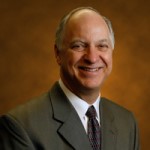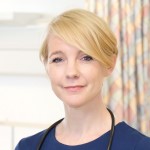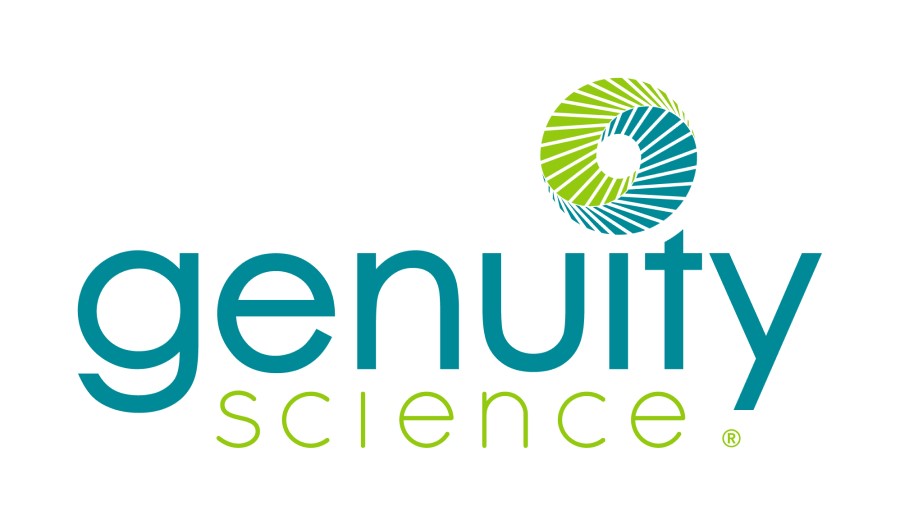Genuity Science is bringing together a distinguished panel of experts from academia, research and industry to discuss opportunities and challenges facing biorepositories and biobanks around the world seeking to maximize their resources for research and drug discovery. Whether the repository contains a small collections of samples, or is a large-scale national or international repository, biobanking will continue to play a key role in accelerating the discovery and development of new drugs, as these efforts require access to a larger array of biological samples. At the same time, biobanks face a variety of challenges in meeting the different interests and unique needs of their collaborators and partners in order to support a growing number of research studies. Maximizing utility and sustainability are critical for the long-term success of biorepositories and biobanks.
This webinar will explore the enormous innovative potential for biobanks and biorepositories to support translational research using a variety of bio-sample types (tissue samples, tumor cells, DNA, RNA, blood samples) collected from population-based and/or disease-specific groups of individuals.
Topics explored will include:
- Effective ways to connect biobanks, academia and industry to make human biospecimens available for preclinical and clinical research
- Leveraging the biorepository for more rapid translation to research, publications and drug discovery
- Funding models to support the long-term sustainability of the biobank
- Partnering Logistics: data, sample tracking, harmonization, governance and consent standards to support biobank interoperability and specimen sharing
Speakers

Professor Stephen Sawcer, University of Cambridge, Dept. of Clinical Neurosciences
Stephen Sawcer is Professor of Neurological Genetics at the University of Cambridge and an Honorary Consultant Neurologist at Addenbrooke’s Hospital. He completed a BSc in Physics at Liverpool University before going to medical school (MB ChB) at Birmingham University. He became MRCP in 1991 and FRCP in 2010. His PhD was undertaken at the University of Cambridge and was supervised by Professor Alastair Compston and Professor Peter Goodfellow. Professor Sawcer has worked on the genetics of multiple sclerosis for more than 20 years with a main focus on genomewide approaches. He is a member of the International Multiple Sclerosis Genetics Consortium (IMSGC) and the Wellcome Trust Case Control Consortium (WTCCC).

Samantha Hutten, Staff Scientist, Michael J Fox Foundation for Parkinson’s Disease Research (MJFF)
Samantha is a staff scientist at the Michael J Fox Foundation for Parkinson’s Disease Research (MJFF), where she oversees the Foundation’s observational cohorts scientific strategy to ensure that it informs and is informed by MJFF’s research priorities. In this role, she manages MJFF’s biosample resources, including resource generation, application for, and use by, the research community. Samantha fosters collaborations between industry and academic partners as well as expert clinicians to tackle field-wide biomarker challenges, discuss and disseminate key data, and develop a strategic roadmap for the Foundation’s outcome measures strategy. Samantha’s core expertise is in fluid biomarker assay development and validation but she has worked across functional areas in her 6.5 years at MJFF.
Samantha holds a PhD in Biomedical Sciences from Albert Einstein College of Medicine in NY.

Gordon R. Bernard, MD, Executive Vice President for Research and Chief Research Officer, Vanderbilt University Medical Center (VUMC)
Gordon R. Bernard, MD, is Executive Vice President for Research and Chief Research Officer, Vanderbilt University Medical Center (VUMC). He joined the faculty at Vanderbilt in 1981 as a physician scientist and became Medical Director for the Medical Intensive Care Unit and Director for Pulmonary and Critical Care research programs in 1983.
Dr. Bernard’s research has primarily focused on improving the care and outcomes of critically ill patients with sepsis and the acute respiratory distress syndrome (ARDS), and he established the Vanderbilt Coordinating Center in 1987 to support the large multi-institutional and international clinical investigations he was leading. Dr. Bernard is a member of the American Association of Physicians and has written or co-authored more than 350 original articles and book chapters.
He currently serves as Executive Vice President for Research at Vanderbilt University Medical Center (VUMC). In the latter role, Dr. Bernard serves as the Director of the Vanderbilt Institute for Clinical and Translational Research, and P.I. of Vanderbilt’s Clinical and Translational Science Award (CTSA), an NIH-funded program that is supported by one of the largest single grants in VUMC history, greater than $140M over the first 15 years.
In these roles, Dr. Bernard oversees the extensive, multifaceted clinical and translational research programs of VUMC including the establishment of a central DNA resource called BioVU. This DNA bank contains more than 300,000 samples of DNA matched to the deidentified electronic health records of the patient and serves as a very rich resource for the conduct of GWAS and PheWAS research among many other uses. Dr. Bernard is also currently the Co-PI of the Duke/Vanderbilt Trial Innovation Center which is one of only 3 such NIH supported centers in the US.

Professor Maeve Lowery, Trinity College Dublin and Consultant Medical Oncologist, St. James Hospital
Professor Maeve Lowery is Professor of Translational Cancer Medicine at Trinity College Dublin and Consultant Medical Oncologist at St. James Hospital. Professor Lowery is chairperson of the Cancer Molecular Diagnostics Advisory Group of the National Cancer Control Program (NCCP). Her clinical and translational research involves design and conduction of phase 1/2 clinical trials in patients with gastrointestinal malignancies, incorporating translational study endpoints to validate predictive and prognostic biomarkers, identify mechanisms of resistance and guide the development of rational therapeutic strategies. Her preclinical work includes the use of immunocompetent murine models of cancer to facilitate assessment of drug delivery and host immune response to therapy. She works closely with industry to develop core collaborative projects with the potential to impact care of cancer patients on both an individual and disease specific level.

David Kavanagh, PhD, Director of Clinical Partnerships, Genuity Science
David leads the clinical partnerships group at Genuity Science. The partnerships function is a key external-facing group with responsibility for establishing large-scale collaborations with clinical and academic institutions throughout the world. David provides leadership, strategic direction and day-to-day coordination of activities for strategic partnership relationships with external entities across a myriad of disease cohort populations.
Within the function, the partnerships team is principally responsible for establishing and managing Genuity’s clinical and academic partnerships at an institutional level while the program team supports the cross-functional development, delivery and co-ordination of Genuity’s cohort research programs and works with our collaborating clinicians, biobanks and researchers to ensure successful delivery of each program.
David has extensive experience in life sciences and has held leadership roles in several high-growth academic and commercial life science organizations including Systems Biology Ireland, located at University College Dublin and CompareNetworks, a San Francisco-based life science marketing company. David’s areas of specialty include life science innovation and commercialization, operational & high performing team development in life science start-up environments, genomics, systems biology, connected health, life science marketing, life science text mining and healthcare consulting.
David holds a PhD in Biochemistry from University College Dublin.
Who Should Attend?
- Researchers, pathologists and operational leaders at biobanks, biorepositories, tissue banks
- Researchers and research leadership, head of school functions and technology transfer officers at academic institutions conducting research in genomics, genetics, systems biology, translational medicine, human health
- Research institutions – director level and above
- Clinical researchers at hospitals and specialist consultants in medicine
What You Will Learn
In this webinar, participants will learn about:
- Effective ways to connect biobanks, academia and industry to make human biospecimens available for preclinical and clinical research
- Leveraging the biorepository for more rapid translation to research, publications and drug discovery
- Funding models to support the long-term sustainability of the biobank
- Partnering Logistics: data, sample tracking, harmonization, governance and consent standards to support biobank interoperability and specimen sharing
Xtalks Partner
Genuity Science
Genuity Science is a data sourcing, analytics and insights organization headquartered in Boston, Massachusetts, USA, with offices in Dublin, Ireland and Reykjavik, Iceland. Genuity Science partners with global biopharma companies to offer deep end-to-end discovery services aimed at catalyzing precision health and improving the quality of life for patients around the world. Services include population-scale, disease-specific data sourcing, high-quality sequencing, robust statistical analysis and software tools for analyzing large datasets and artificial intelligence (AI). The company operates advanced CAP-accredited, CLIA-certified genomics laboratories in Woburn, Massachusetts, USA and in Dublin, Ireland and is deeply committed to data stewardship and data governance across its global offices. Learn more at www.genuitysci.com
You Must Login To Register for this Free Webinar
Already have an account? LOGIN HERE. If you don’t have an account you need to create a free account.
Create Account


